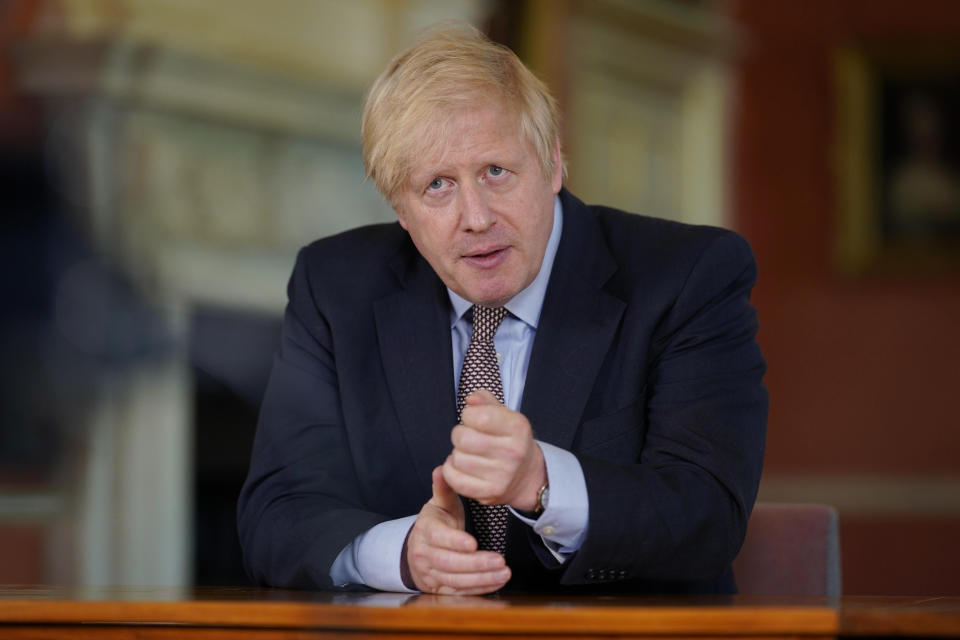Boris Johnson: Scientific experts slam PM’s plan to re-open country as attempt to ‘have his cake and eat it’
Scientists have criticised Boris Johnson’s roadmap for the lifting of the coronavirus lockdown, saying the prime minister is trying to “have his cake and eat it”.
In a speech on Sunday evening, Johnson laid out a plan to gradually ease lockdown restrictions, saying people can go back to work if they can’t work from home, to be followed by a phased reopening of schools from 1 June and the reopening of parts of the hospitality industry from July at the earliest.
But scientists, among others, have criticised the prime minister’s strategy for a lack of clarity, with one expert saying the idea that policy should be guided by the scientific community had been “abandoned”.
Richard Horton, editor of medical journal The Lancet — who has been outspoken in his criticism of the government’s handling of the crisis — said the PM’s speech showed the UK was only halfway through lockdown.

Dr Stephen Griffin, associate professor in the School of Medicine at the University of Leeds, said: “I am deeply concerned by the confusing message from the government this evening.
“It feels as though the ethos that advice from the scientific community should guide policy has been abandoned.”
Latest coronavirus news, updates and advice
Live: Follow all the latest updates from the UK and around the world
Fact-checker: The number of COVID-19 cases in your local area
6 charts and maps that explain how coronavirus is spreading
He said there had been a plateau in new cases rather than a significant drop and found it difficult to understand why potential changes had been announced “ahead of time”, which could promote a message that the situation is less serious than it is.
“We cannot and should not attempt to second guess this pandemic,” he said.
“It is essential that we obtain a clear understanding of community spread via efficient and widespread testing before any of the measures announced this evening stand a chance of success.”
Professor Trish Greenhalgh, professor of Primary Care Health Sciences at the University of Oxford’s Nuffield Department of Primary Care Health Sciences, said: “It looks like the PM is trying to implement the ‘have cake and eat it’ maxim he popularised in a previous life.
“On the one hand, he says he’s not lifting the lockdown because he is determined to avoid a second peak. On the other hand, he appears very keen to lift the lockdown because he urgently needs to fix the economy.”
She said it was not clear how people could get to work if they had been advised to avoid public transport, and also questioned how employers would be able to “generate two metres of distance between employees out of thin air”.
“Leaving aside who we’re allowed to play tennis with from Wednesday, this announcement seems to be pitching at a middle ground that could give us the worst of both worlds,” she added.
Professor Jonathan Ball, professor of molecular virology at the University of Nottingham, said: “I think the reality is, this is a statement driven almost entirely by an economic agenda and in truth lacks clarity in terms of future control of the virus epidemic.
“Recognition of the importance of infection control through extensive testing and effective contact tracing was a welcome statement, but I am not convinced that the systems are really in place to do this. Hopefully clarity will emerge over the next few days.”
Dr Michael Head, senior research fellow in global health at the University of Southampton, said the new “stay alert’ messaging was “ambiguous and lacks clarity”.
Professor Dame Til Wykes, vice dean of psychology and systems sciences at the Institute of Psychiatry, Psychology and Neuroscience at King’s College London, agreed that the message was confused.
“We need clear rules and messages that are concise, clear and accurate. This is just short,” Prof Wykes added.
“It is clearly a message written by a communications committee and was never tested in a focus group or with behavioural scientists. A woolly message will hinder not promote the next phase of this lockdown.”
My interpretation of Boris Johnson this evening: the pandemic of COVID-19 in the UK is much more serious than we have been led to believe. Johnson was unusually serious, fists clenched, no jokes about squashing sombreros.
— richard horton (@richardhorton1) May 10, 2020
Writing on Twitter, Lancet editor Horton said Johnson had been “unusually serious”, suggesting the crisis was more serious than people realised.
He said: “My interpretation of Boris Johnson this evening: the pandemic of COVID-19 in the UK is much more serious than we have been led to believe. Johnson was unusually serious, fists clenched, no jokes about squashing sombreros.
“The switch to ‘stay alert’ is an act of appeasement to those in his party who don’t understand how serious this disease is (remember, Boris Johnson does). Be clear about what he said: we are Level 4 in his new alert system, and that’s after 7 weeks of lockdown. Not good at all.”
He said Johnson’s words showed there is “no headroom for error” when it comes to containing coronavirus in the UK, and added: “The most telling clue that the UK is in serious trouble was his statement that bars/restaurants will remain closed until July. That’s 7 weeks.
“In other words, we are only halfway through lockdown. That is well beyond predictions in other countries for the lockdown time needed.”

 Yahoo News
Yahoo News 


